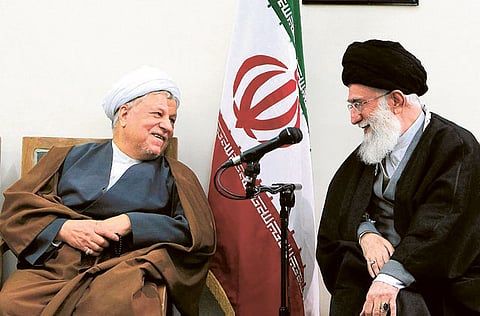World powers want ‘serious dialogue' with Iran
IAEA joint statement voices regret over stepped-up uranium enrichment campaign and demands access to Parchin

Vienna Six world powers called on Iran Thursday to let international inspectors visit a military site where the UN nuclear watchdog says development work relevant to nuclear weapons may have taken place.
In a joint statement at a board meeting of the International Atomic Energy Agency (IAEA), the powers also voiced "regret" about Iran's stepped-up campaign to enrich uranium — activity which can have both civilian and military purposes.
"We urge Iran to fulfil its undertaking to grant access to Parchin," the statement said, referring to the military facility south-east of Tehran. Iran refused access to the complex during two rounds of talks with a senior IAEA team earlier this year.
The six countries said that upcoming talks with Iran focused on its nuclear programme must be "serious", without pre-conditions and produce "concrete results".
"We call on Iran to enter, without pre-conditions, into a sustained process of serious dialogue, which will produce concrete results," said a statement on behalf of the United States, China, Russia, France, Britain and Germany, known as the P5+1.
They added that their readiness to negotiate was "on the understanding that these talks will address the international community's long-standing concerns and that there will be serious discussions on concrete confidence building measures".
The statement was read out by China's IAEA envoy at a closed-door regular board meeting at its Vienna headquarters.
Meanwhile, Iran's supreme leader Ayatollah Ali Khamenei yesterday welcomed comments by US President Barack Obama damping down talk of war against Tehran over its controversial nuclear drive.
"This talk is good talk and shows an exit from illusion," Khamenei's website quoted the leader as telling clerics from the Assembly of Experts, the 86-member body which selects the supreme leader, supervises his activities and can dismiss him.
Obama on Tuesday said that Iran's nuclear programme was not an immediate threat, arguing a "window" for diplomacy could forestall an Iranian bomb, while slamming Republican candidates for their hawkish statements demanding military action.
On Tuesday EU foreign policy representative Catherine Ashton said on behalf of the six powers that they were ready to hold talks with Iran. It remained to be agreed where and when the negotiations would be held.
The last round in Istanbul in January 2011 broke down, according to Western diplomats, over Tehran's demand to discuss "preconditions" before honing in on the nuclear dispute.
Focus needed
Ashton said in a letter to Iran's chief nuclear negotiator Saeed Jalili that the powers did not want to "repeat the experience of Istanbul" and that the dialogue "will have to focus" on the "key issue" of Iran's nuclear programme.
Iranian parliamentary speaker Ali Larijani warned that the talks would fail if they were used to "pressure" Tehran.
White House spokesman Jay Carney said on Wednesday that in the talks Washington "will demand that Iran live up to its international obligations — that it provide verifiable assurances it is not pursuing a nuclear weapon".
The possible resumption comes despite an apparent deadlock between the IAEA and Iran over the nuclear programme after two visits to Tehran in January and February.
IAEA chief Yukiya Amano repeated in a report circulated to member states on February 24 that he still has "serious concerns regarding possible military dimensions to Iran's nuclear programme".


